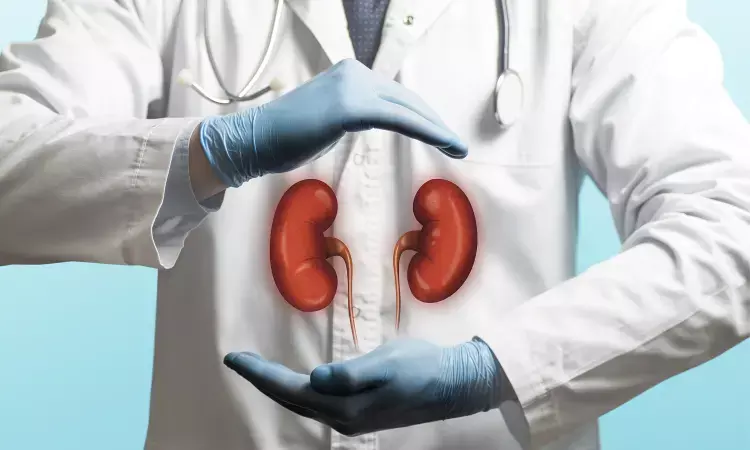- Home
- Medical news & Guidelines
- Anesthesiology
- Cardiology and CTVS
- Critical Care
- Dentistry
- Dermatology
- Diabetes and Endocrinology
- ENT
- Gastroenterology
- Medicine
- Nephrology
- Neurology
- Obstretics-Gynaecology
- Oncology
- Ophthalmology
- Orthopaedics
- Pediatrics-Neonatology
- Psychiatry
- Pulmonology
- Radiology
- Surgery
- Urology
- Laboratory Medicine
- Diet
- Nursing
- Paramedical
- Physiotherapy
- Health news
- Fact Check
- Bone Health Fact Check
- Brain Health Fact Check
- Cancer Related Fact Check
- Child Care Fact Check
- Dental and oral health fact check
- Diabetes and metabolic health fact check
- Diet and Nutrition Fact Check
- Eye and ENT Care Fact Check
- Fitness fact check
- Gut health fact check
- Heart health fact check
- Kidney health fact check
- Medical education fact check
- Men's health fact check
- Respiratory fact check
- Skin and hair care fact check
- Vaccine and Immunization fact check
- Women's health fact check
- AYUSH
- State News
- Andaman and Nicobar Islands
- Andhra Pradesh
- Arunachal Pradesh
- Assam
- Bihar
- Chandigarh
- Chattisgarh
- Dadra and Nagar Haveli
- Daman and Diu
- Delhi
- Goa
- Gujarat
- Haryana
- Himachal Pradesh
- Jammu & Kashmir
- Jharkhand
- Karnataka
- Kerala
- Ladakh
- Lakshadweep
- Madhya Pradesh
- Maharashtra
- Manipur
- Meghalaya
- Mizoram
- Nagaland
- Odisha
- Puducherry
- Punjab
- Rajasthan
- Sikkim
- Tamil Nadu
- Telangana
- Tripura
- Uttar Pradesh
- Uttrakhand
- West Bengal
- Medical Education
- Industry
Everolimus after surgery can improve outcomes in those with high-risk kidney cancer

In a study of patients with high-risk renal cell carcinoma, those who took the drug everolimus daily for up to one year after surgery lived longer without their disease returning (recurrence-free survival, or RFS) than those who did not take everolimus, although the results narrowly missed the clinical trial's prespecified level for statistical significance. Improvement was seen primarily in patients with very high-risk disease, while patients with intermediate high-risk disease saw no improvement in RFS.
The results are from the phase III S0931 trial, also known as the EVEREST study, conducted by SWOG Cancer Research Network, a cancer clinical trials group funded by the National Cancer Institute (NCI). They will be presented at the 2022 annual meeting of the American Society of Clinical Oncology (ASCO) in Chicago on June 3.
The study was led by Christopher W. Ryan, MD, a SWOG investigator who is professor of medicine at Oregon Health & Science University.
"This is the only adjuvant study in renal carcinoma of the class of therapies called mTOR inhibitors," Ryan said. "While there were fewer recurrences in patients who took everolimus, the results fell just shy of statistical significance. Patients at the highest risk of recurrence-those with locally advanced tumors or lymph node involvement-appeared to garner the most benefit from treatment."
The EVEREST trial enrolled patients who had been diagnosed with intermediate high-risk or very high-risk renal cell carcinoma and who had had their cancer surgically removed by a partial or radical nephrectomy. The study randomized 1,545 of these patients to a year of either everolimus (a 10 mg pill daily) or a placebo, starting within 12 weeks of their surgery.
Overall across all patients, RFS was improved on the everolimus arm: a hazard ratio (HR) of 0.85, with a 95 percent confidence interval (CI) of 0.72-1.00 with a one-sided P value of 0.025. These results, however, narrowly missed the pre-specified significance level of 0.022.
Median RFS has not yet been reached for patients on either arm, but the estimates for five-year RFS are 67 percent for patients on the everolimus arm and 63 percent for those on the placebo arm.
EVEREST patients with very high-risk disease (55 percent of those enrolled) who took everolimus saw a 21 percent improvement in RFS (HR: 0.79; 95 percent CI 0.65-0.97), whereas RFS was essentially unchanged for those in the intermediate high-risk group (HR: 0.99; 95 percent CI 0.73-1.35).
Adverse events (side effects) such as oral mucositis (an inflammation of the lining of the mouth) led many patients to discontinue treatment. On the everolimus arm, 37 percent of patients stopped treatment because of adverse events they were experiencing. In fact, only 45 percent of patients on the everolimus arm completed all 54 weeks of study treatment, versus 69 percent on the placebo arm.
"High discontinuation rates of oral adjuvant therapies are common in cancer," Dr. Ryan said. "Despite the large number of patients who stopped everolimus early, we still observed favorable results for everolimus, which brings into question the duration of adjuvant therapy that is actually needed."
Dr Kamal Kant Kohli-MBBS, DTCD- a chest specialist with more than 30 years of practice and a flair for writing clinical articles, Dr Kamal Kant Kohli joined Medical Dialogues as a Chief Editor of Medical News. Besides writing articles, as an editor, he proofreads and verifies all the medical content published on Medical Dialogues including those coming from journals, studies,medical conferences,guidelines etc. Email: drkohli@medicaldialogues.in. Contact no. 011-43720751


